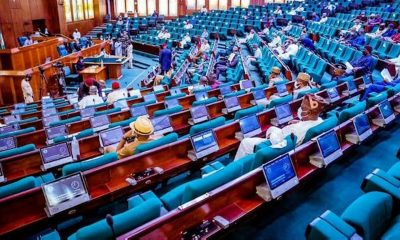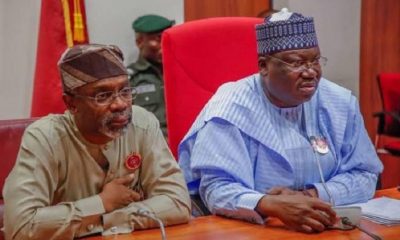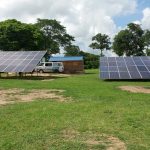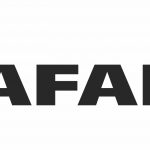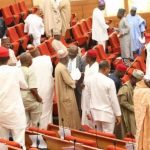Economy
National Assembly Praises SEC for Fiscal Sustainability
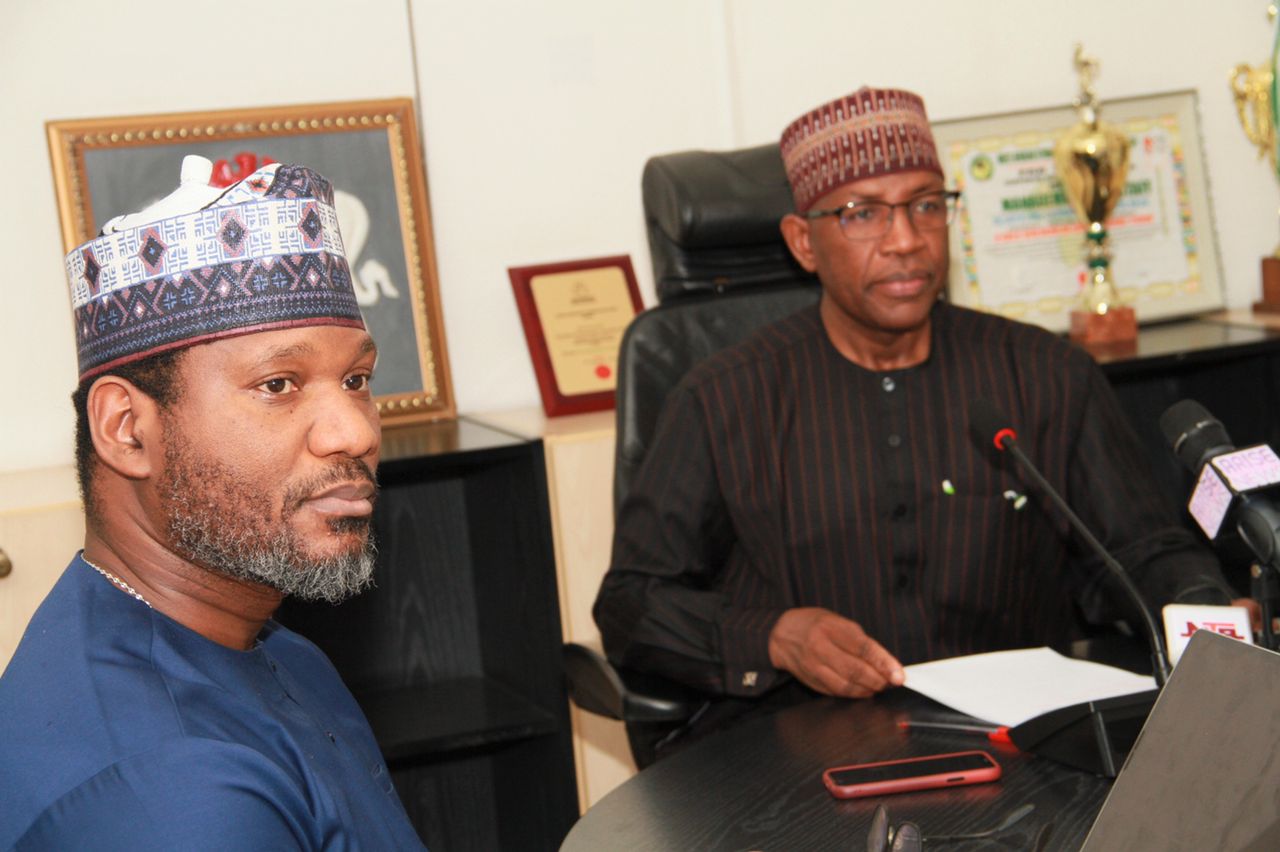
By Aduragbemi Omiyale
The Securities and Exchange Commission (SEC) has been praised by the National Assembly (NASS) for its decisive steps in ensuring it attains fiscal sustainability.
Chairman of the House of Representatives Committee on Finance, Mr James Abiodun Faleke, applauded the agency during the 2023-2025 Medium Term Expenditure Framework/Fiscal Strategy Paper (MTEF/FSP) interactive session in Abuja on Tuesday.
He expressed his pleasure at the various efforts the commission has taken so far in shoring up its finances, noting that, “Last year, when you came here, we challenged you to look inwards and return the SEC to sustainability and I am happy you have done that and that you are living up to expectations. I want to commend you for your efforts thus far, while also admonishing you to work harder.”
Speaking earlier, the Director-General of the SEC Mr Lamido Yuguda, stated that 2020 and 2021 were particularly difficult times for the organisation as it was running a deficit.
“When we came on board, it was very difficult but we assured the National Assembly that we were going to take certain actions to make this deficit a thing of the past and our story this year is that we have actually turned the corner.
“If you look at our 2021 and 2020, compare with the 2022 budget and the 6 months in 2022 you will see that there is an actual improvement in the way we manage the finances of the commission.
“It shows our budget for 2022 and the actual out time for the first half of that year. You can see that we projected a deficit of N1.6 billion, but as at the end of the first half, we have a surplus of about N2.5 billion,” he noted.
He stated that the presentation is a summary of the kind of efforts the current Management has made over the past few years to position the Commission on the path of fiscal sustainability.
Mr Yuguda told the Members that the SEC has so far carried out its promise to reduce the top-heavy structure in the Commission by offering some top personnel a voluntary exit package.
“Mr Chairman we were top heavy and we said before this committee that we had a plan to offer a voluntarily early exit to some of our top personnel and I am happy to report that at the end of last year we offered this scheme and quite a number of our staff took the offer and we were able to substantially reduce our workforce by almost 30 per cent,” he stated.
While admitting that the commission has been operating under very difficult circumstances since it is currently superintending over a market that was affected by the negative impact of the coronavirus pandemic, he assured that steps are being taken to ensure that the fortunes of the SEC continues to improve.
He said, “If we go through the Medium-Term Expenditure Framework which we started last year if we look at 2022 and 2023, you will see that we have worked on our expenditure and the deficit is now turning into a surplus. surplus. We, therefore, need the support of all to engineer the kind of transition we are thinking of at the SEC.”
Economy
Naira Rallies to N1,358/$1 at Official Market, N1,450/$1 at Parallel Market

By Adedapo Adesanya
The Naira rallied at the different segments of the foreign exchange (FX) market on Wednesday as supply continues to outweigh demand, giving it an edge against the United States Dollar.
In the parallel market, the Nigerian Naira improved its value on the greenback yesterday by N5 to quote at N1,450/$1 compared with the previous day’s N1,455/$1, and at the GTBank FX desk, it gained N3 to trade at N1,383/$1, in contrast to Tuesday’s exchange rate of N1,386/$1.
In the the Nigerian Autonomous Foreign Exchange Market (NAFEX), which is also the official market, the Naira firmed up against the Dollar at midweek by N14.63 or 1.1 per cent to settle at N1,358.28/$1 versus the preceding session’s N1,372.91/$1.
Against the Pound Sterling, the domestic currency appreciated on Wednesday by N14.16 to N1,863.43/£1 from the previous day’s N1,877.59/£1, and gained N13.73 on the Euro to end at N1,606.03/€1 versus the N1,619.76/€1 it was exchanged a day earlier.
The strengthening of the Naira value has been driven by the injection of forex into the financial markets by foreign investors seeking attractive investments in the emerging markets, helping to boost Nigeria’s external reserves, which provide the Central Bank of Nigeria (CBN) with the capacity to support the local currency.
As of February 4, 2026, the reserves reached $46.59 billion.
The local currency has been able to find a solid path despite no indications of any intervention from the apex bank in recent week, strengthening the case of price discovery.
Policy moves by the CBN is also offering a backbone for the FX market as it considers some strategic reforms through a policy known as the Single Regulatory Window.
In its 2025 Fintech Report, the central bank said this scheme will significantly reduce time-to-market for new digital financial products by streamlining licensing and supervisory processes across multiple agencies.
Meanwhile, the cryptocurrency market was in red amid a broad sell-off in global technology stocks, with reports showing that liquidity was notably thin, amplifying price moves and contributing to forced liquidations. The decline followed a sharp sell-off in global technology stocks overnight, where concerns over the pace of artificial intelligence adoption and rising capital spending by major firms weighed heavily on valuations.
Bitcoin (BTC) lost 7.9 per cent to sell at $70,534.94, Ripple (XRP) declined by 11.2 per cent to $1.42, Binance Coin (BNB) slumped by 9.4 per cent to $689.70, Ethereum (ETH) crashed by 8.9 per cent to $2,072.46, and Solana (SOL) dipped by 8.7 per cent to $89.86.
In addition, Dogecoin (DOGE) depreciated by 6.9 per cent to $0.1008, Cardano (ADA) slipped by 6.8 per cent to $0.2792, Litecoin (LTC) dropped 5.1 per cent to trade at $57.56, and US Dollar Tether (USDT) went down by 0.1 per cent to $0.9980, while the US Dollar Coin (USDC) closed flat at $1.00.
Economy
Selective Buying in Bellwether Stocks Further Raises NGX by 1.28%

By Dipo Olowookere
The decision of investors to cherry-pick stocks with sound fundamentals across categories further lifted the Nigerian Exchange (NGX) Limited by 1.28 per cent on Wednesday.
This selective buying of equities was inspired by the earnings season, as companies that have already released their 2025 financial statements have impressed market participants.
However, the insurance sector experienced profit-taking yesterday, causing its index to go down by 0.84 per cent at the close of business.
But this loss was offset by the 2.33 per cent growth achieved by the banking index, with the other remaining sectors also closing in green. The energy industry appreciated by 1.52 per cent, the industrial goods landscape expanded by 1.20 per cent, and the consumer goods counter improved by 1.09 per cent.
As a result, the All-Share Index (ASI) went up by 2,128.61 points to 168,030.18 points from 165,901.57 points and the market capitalization rose by N1.366 trillion to N107.861 trillion from the previous day’s N106.495 trillion.
Yesterday, 53 equities ended on the advancers’ chart and 26 equities finished on the laggards’ table, indicating a positive market breadth index and strong investor sentiment.
DAAR Communications led the gainers’ group after it surged by 10.00 per cent to sell for N1.87, Berger Paints appreciated by 10.00 per cent to N66.00, Fortis Global Insurance advanced by 10.00 per cent to 22 Kobo, RT Briscoe also jumped by 10.00 per cent to N10.45, and First Holdco improved by 9.92 per cent to N48.75.
Conversely, Red Star Express led the losers’ gang after it went down by 9.97 per cent to N17.15, Deap Capital also fell by 9.97 per cent to N6.86, Union Homes REIT slipped by 9.95 per cent to N69.25, McNichols dipped by 9.93 per cent to N6.53, and eTranzact lost 9.89 per cent to trade at N16.85.
At the midweek’s session, traders transacted 694.8 million shares worth N20.6 billion in 42,095 deals compared with the 736.4 million shares valued at N24.7 billion traded in 46,026 deals a day earlier, showing a shortfall in the trading volume, value, and number of deals by 5.65 per cent, 16.60 per cent, and 8.54 per cent, respectively.
Chams ended the day as the busiest stock after trading 57.4 million units worth N256.3 million, Universal Insurance transacted 56.2 million units valued at N88.8 million, First Holdco exchanged 35.3 million units for N1.7 billion, Deap Capital traded 26.8 million units valued at N187.0 million, and Wema Bank sold 26.7 million units worth N674.6 million.
Economy
Oil Prices Climb 3% on US-Iran Talk Jitters

By Adedapo Adesanya
Oil prices surged about 3 per cent on Wednesday after it was reported that planned talks between the United States and Iran on Friday could collapse.
Brent futures grew by $2.13 or 3.16 per cent to $69.46 a barrel, while the US West Texas Intermediate (WTI) futures gained $1.93 or 3.05 per cent to trade at $65.14 per barrel.
The US and Iran had agreed to meet on Friday in Istanbul, with other Middle Eastern countries participating as observers.
However, the Iranians said on Tuesday that they wanted to move the talks to Oman and hold them in a bilateral format, to ensure that they focused only on nuclear issues and not other matters like missiles that are priorities for the US and countries in the region.
US officials were at first open to the request to change the location but then rejected it.
Later, the talks scheduled for Friday were back on, after several Middle Eastern leaders urgently lobbied the Trump administration on Wednesday afternoon not to follow through on threats to walk away.
The talks will be held in Muscat, the capital of Oman, on Friday.
The tensions between the US and Iran and heightened fears of potential disruption to oil flows through the Strait of Hormuz, where 20 per cent of the world’s oil supply passes through.
Members of the Organisation of the Petroleum Exporting Countries (OPEC) such as Saudi Arabia, Iran, the United Arab Emirates, Kuwait and Iraq export most of their crude via the strait.
Recall that the US military on Tuesday shot down an Iranian drone that aggressively approached a US aircraft carrier in the Arabian Sea. Separately, a group of Iranian gunboats approached a US-flagged tanker north of Oman.
The US Energy Information Administration (EIA) said on Wednesday that US crude stocks fell last week as a winter storm gripped large swaths of the country.
US crude oil inventories fell by 3.5 million barrels to 420.3 million barrels last week, as oil output slid to the lowest level since November 2024, the EIA said.
The EIA’s data release follows figures by the American Petroleum Institute (API) that were released a day earlier, which suggested that crude oil inventories fell by a colossal 11.1 million barrels.
-

 Feature/OPED6 years ago
Feature/OPED6 years agoDavos was Different this year
-
Travel/Tourism9 years ago
Lagos Seals Western Lodge Hotel In Ikorodu
-

 Showbiz3 years ago
Showbiz3 years agoEstranged Lover Releases Videos of Empress Njamah Bathing
-

 Banking8 years ago
Banking8 years agoSort Codes of GTBank Branches in Nigeria
-

 Economy3 years ago
Economy3 years agoSubsidy Removal: CNG at N130 Per Litre Cheaper Than Petrol—IPMAN
-

 Banking3 years ago
Banking3 years agoSort Codes of UBA Branches in Nigeria
-

 Banking3 years ago
Banking3 years agoFirst Bank Announces Planned Downtime
-

 Sports3 years ago
Sports3 years agoHighest Paid Nigerian Footballer – How Much Do Nigerian Footballers Earn



